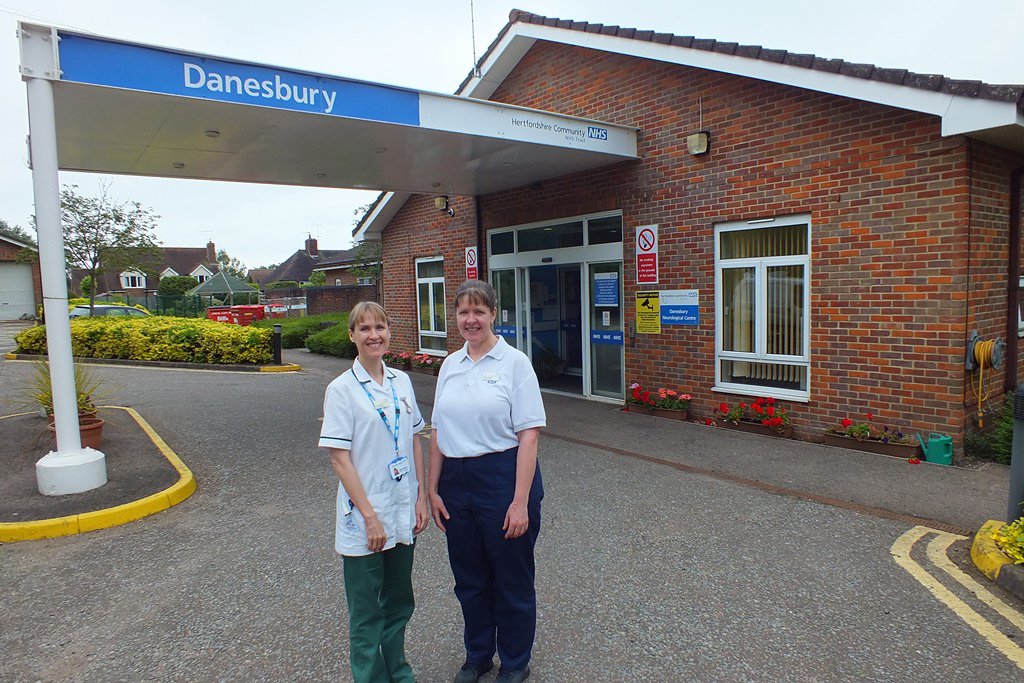The Parkinson’s STABLE programme – Staying Active with Big Limb Exercises – has been designed by Wendy Forsyth, Physiotherapist and Gillian Murphy, Occupational Therapist at Hertfordshire Community NHS Trust.
Over the past four years the pair have helped more than 50 people across the county living with Parkinson’s disease, to maintain their independence and increase their quality of life.
Wendy said: “The Parkinson’s STABLE programme is an eight-week functional group exercise session. It runs at Danesbury Neurological Centre in Welwyn for people who are newly diagnosed or who have mild symptoms.
Each group has a maximum of eight people to allow plenty of attention from the therapists. “As it is our own exercise programme, Gillian and I fit it in around our everyday workloads. It has been recognised as providing such positive results that we now have a waiting list of up to a year.”
The pair have now sought help from the University of Hertfordshire’s Research Design Service (RDS), to support them with writing a research grant application and analysing data – the grant and the RDS are funded by the National Institute for Health Research. The Friends of Danesbury, a charity group in Welwyn, has also provided support with funding.
The aim is to publish a paper which will officially establish STABLE as an NHS treatment plan.
In addition a manual to help train other therapists to deliver the programme is being drawn up.
Parkinson's is a progressive neurological condition with the main symptoms being a tremor, rigidity and slowness of movement.
The Parkinson’s STABLE programme is centred towards improving everyday tasks such as getting dressed, getting out of bed, walking, maintaining balance, writing, cooking or shopping.
The tasks in each exercise session are chosen by group members in areas they wish to address. Gillian said: “It is very common for people with Parkinson’s disease to become socially isolated as their condition deteriorates. “Going out in public can become a big thing, and when your confidence drops because you have lost certain abilities it is easy to shut yourself away. The group provides social support and interaction with others in similar situations which participants have found extremely helpful. “There is research to show we can influence the chemicals in our brain to help delay the progression of the condition. This is by using high intensity exercises which encourages people to move with more physical effort, using bigger movements. “People with Parkinson’s have difficulty sensing the amount of effort needed to move normally, by using the high intensity exercises and mindfulness of movement we aim to address these problems. We encourage everyone to take the exercises away and apply them into their routines each day. “This programme is very cost effective to the NHS helping to reduce the demand on services. It also reduces the demand on social care needs and on carers as people are able to manage their condition and remain more independent.”

